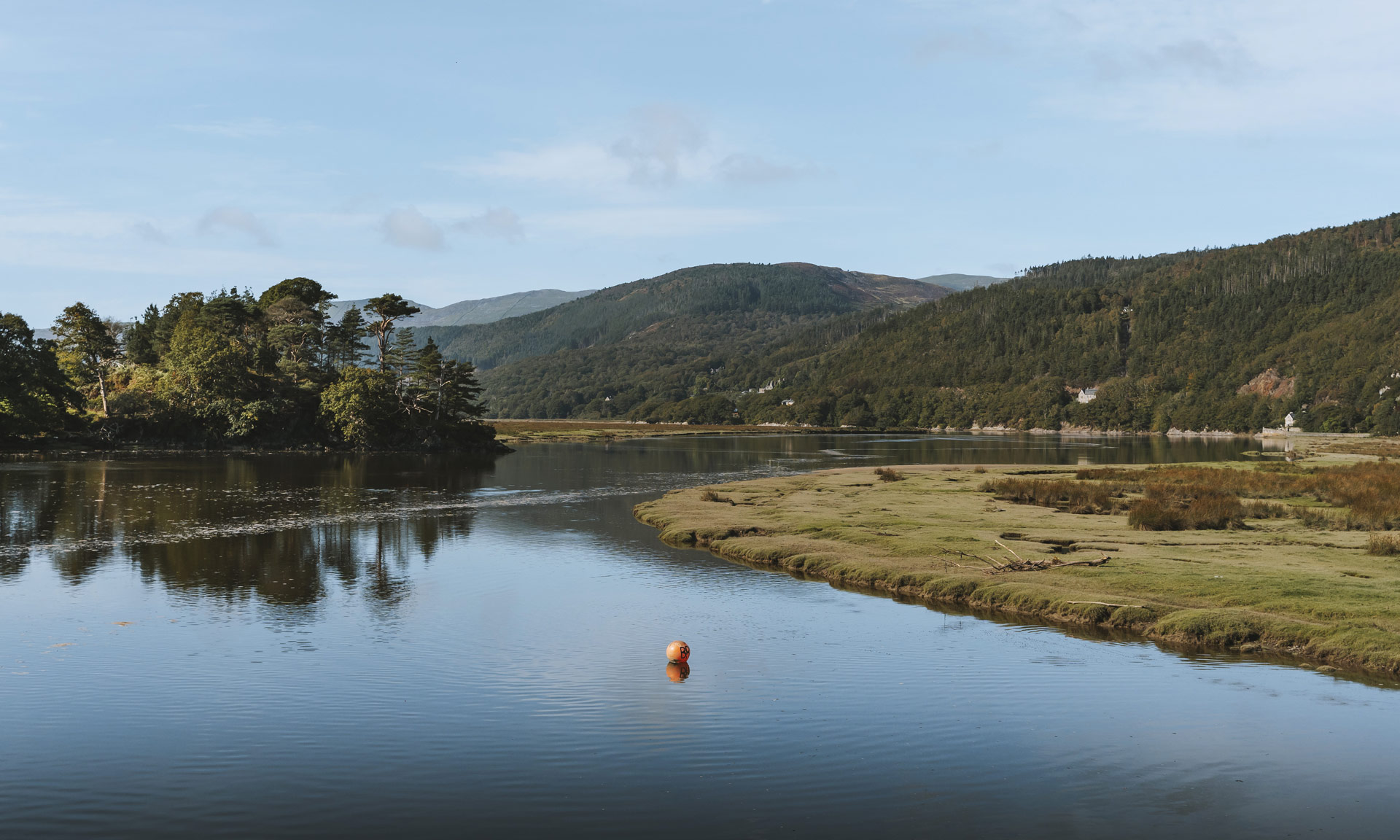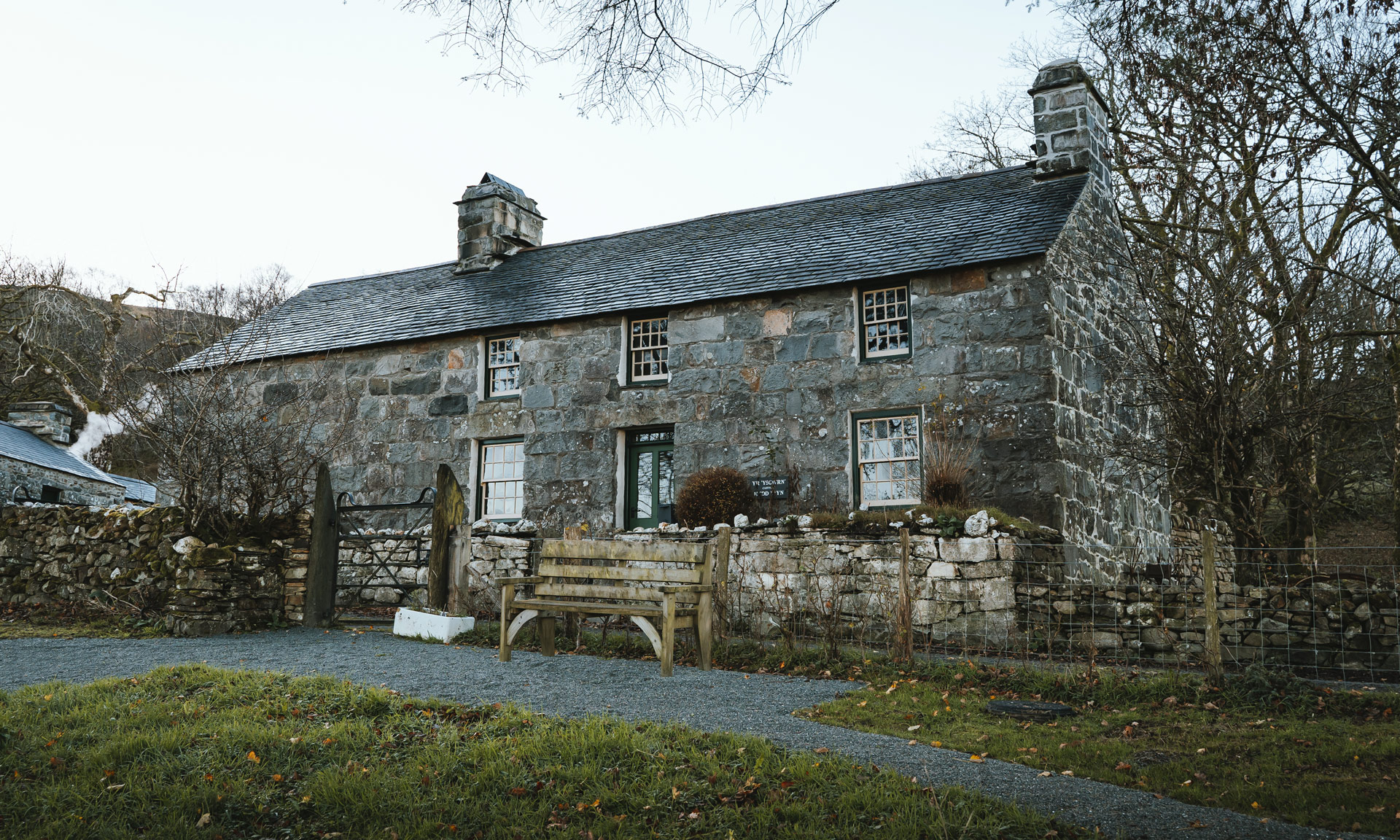Yr Ysgwrn is not an ordinary Welsh farmhouse. In 1917, it became a symbol of a lost generation of young lives and the bereavement of communities following the enormous losses of the First World War. People have visited the house to pay tribute and see the Black Chair ever since.
Yr Ysgwrn was the home of Ellis Humphrey Evans, better known as Hedd Wyn, one of Wales’s most famous poets.
Although the farmhouse and its story represent the tragedy of the losses of the First World War, the farmhouse also reflects the social, cultural and agricultural history of the turn of the twentieth century.
Stepping into Yr Ysgwrn is like stepping back in time. Most of the furniture and decor has remained the same since Hedd Wyn’s time.
Thanks to funding from the National Heritage Memorial Fund and the Welsh Government, Yr Ysgwrn was transferred into the care of Snowdonia National Park Authority on St David’s Day 2012.

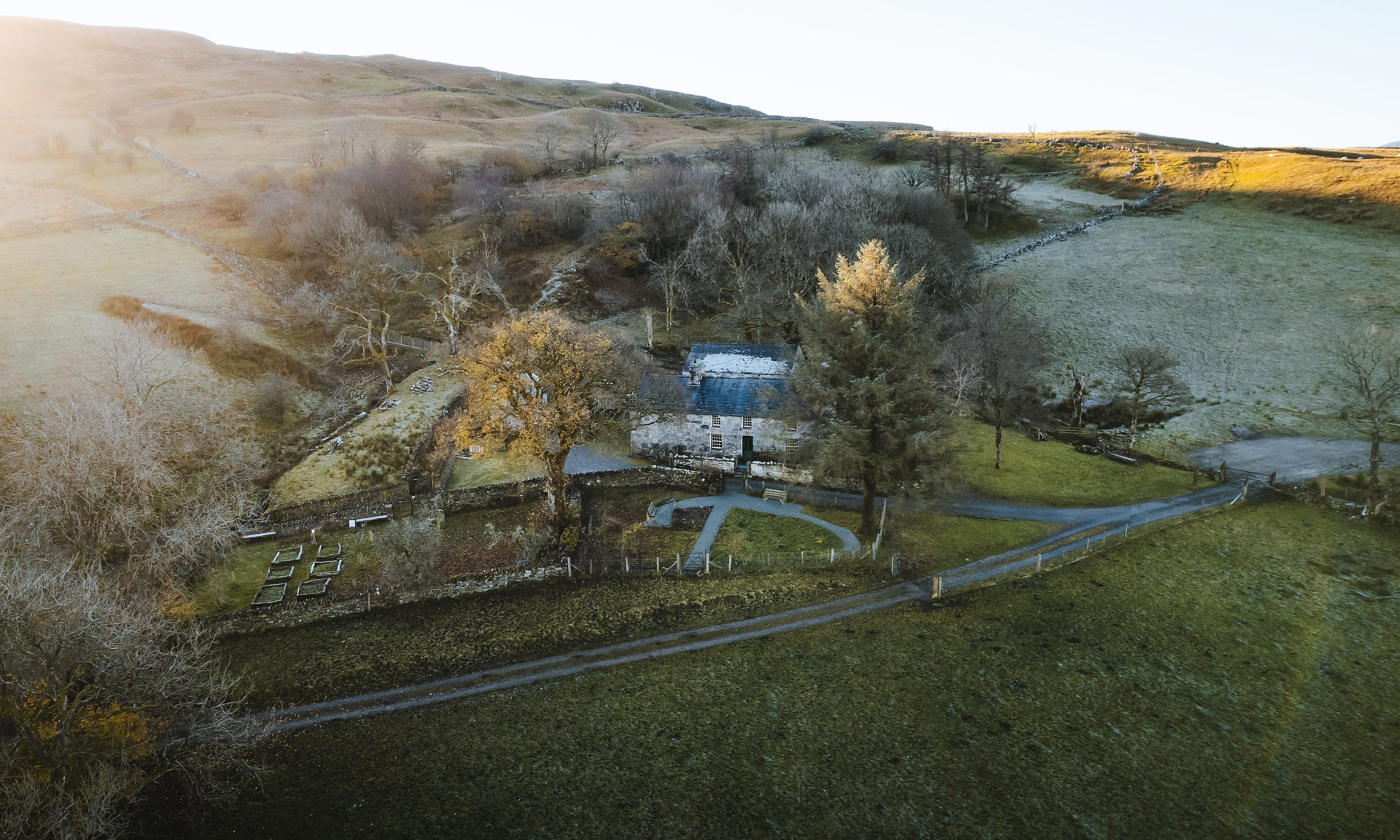
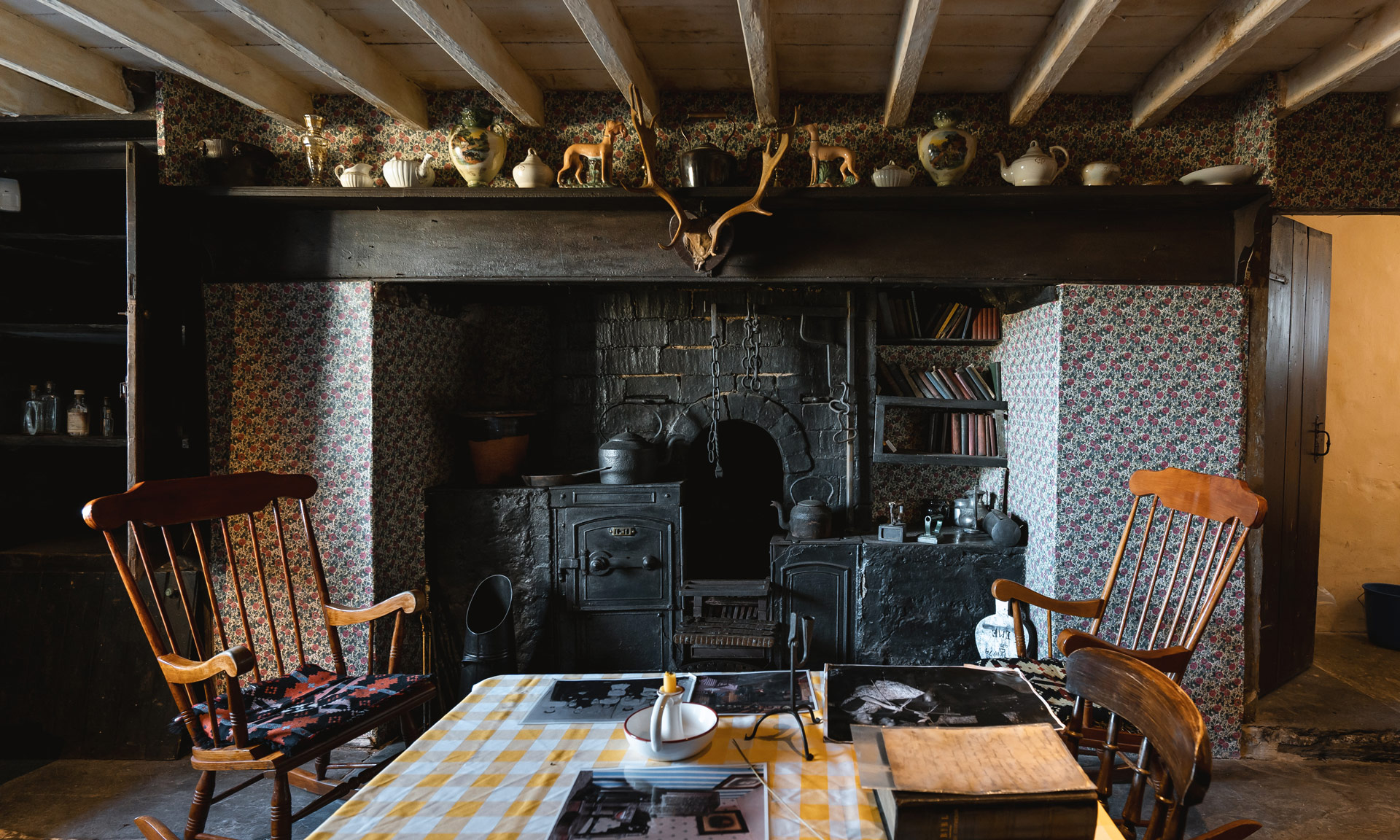

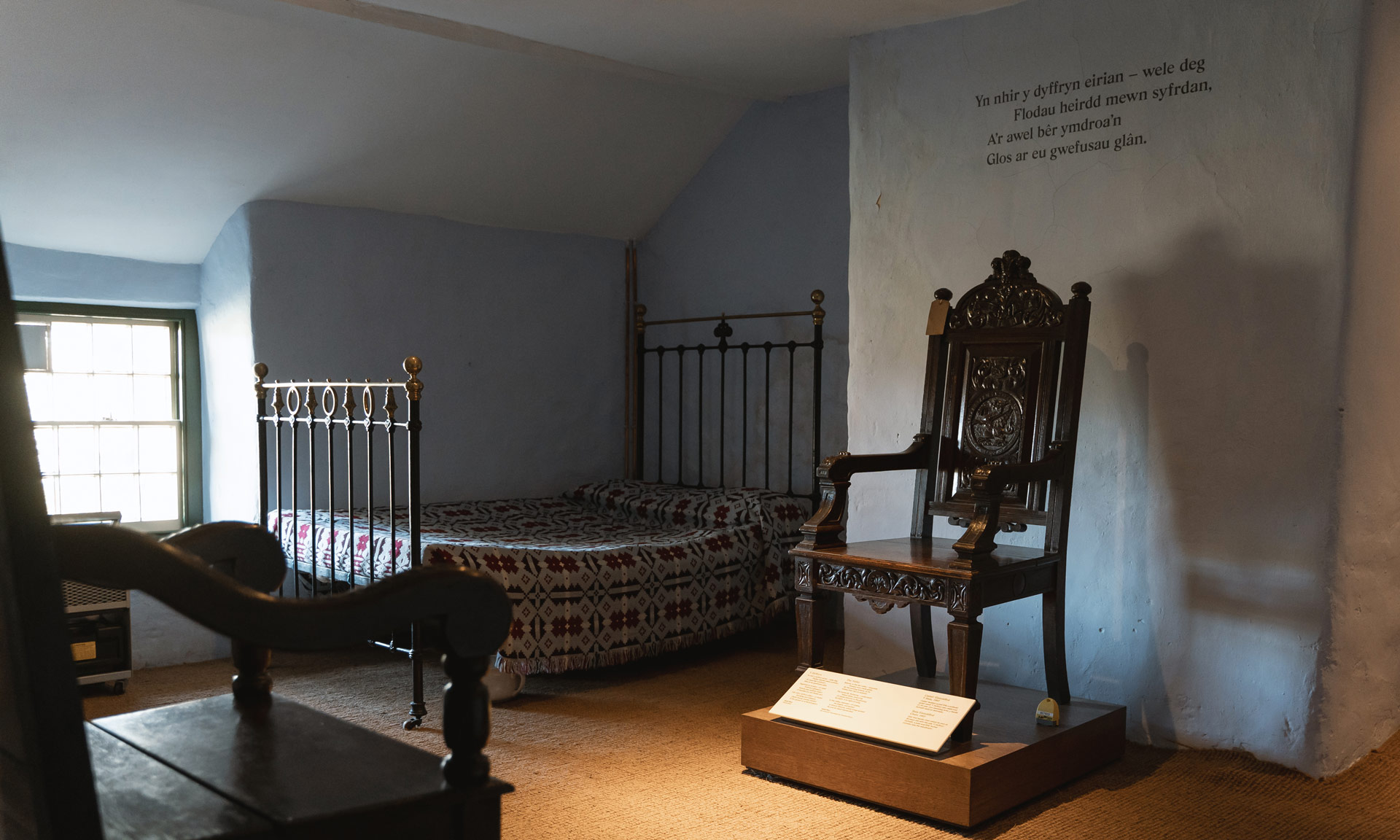
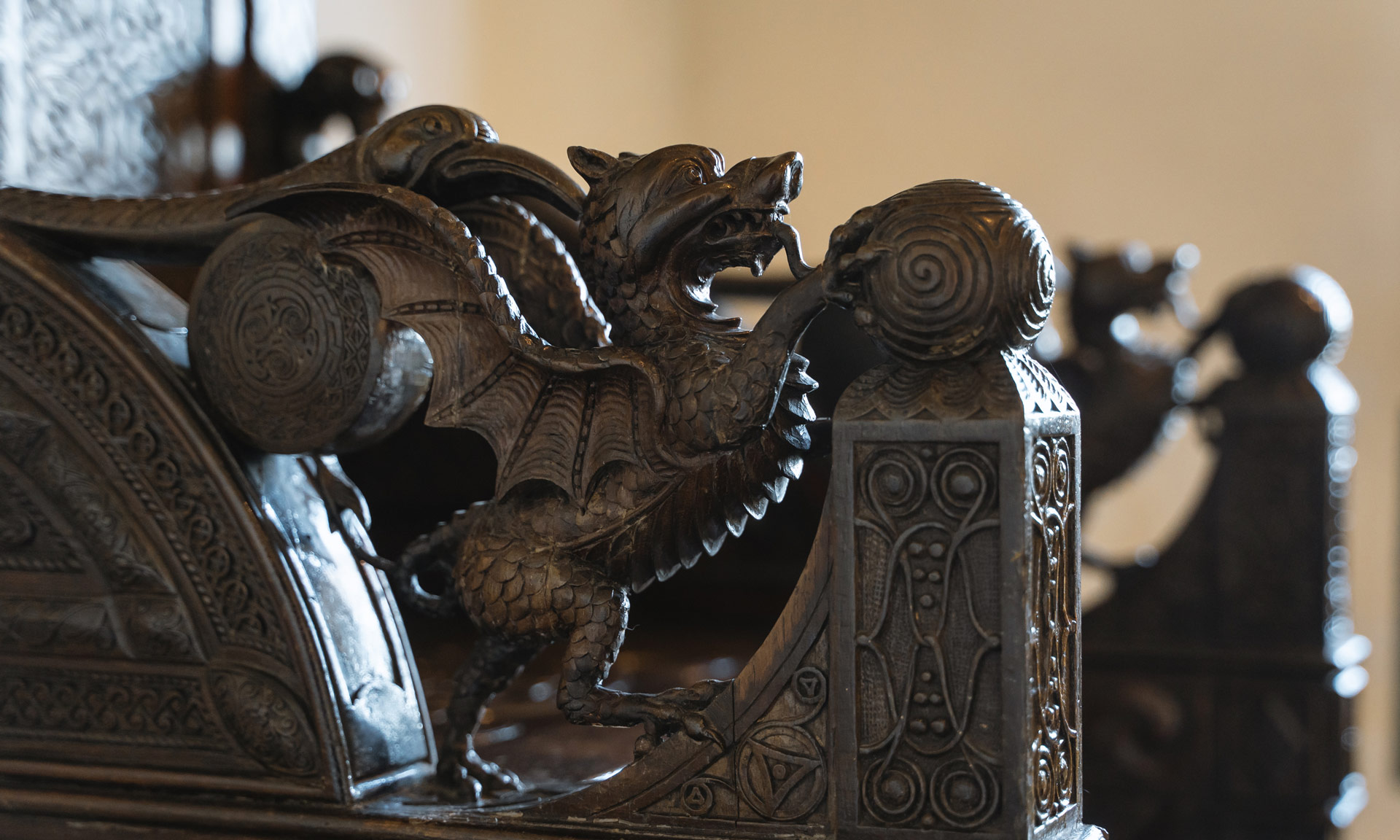
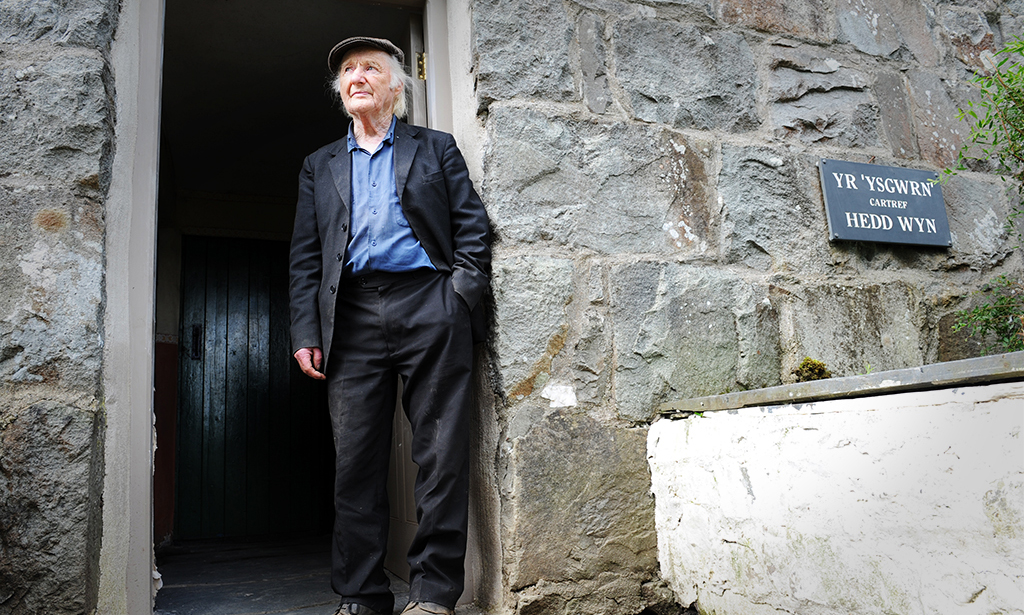
Hedd Wyn and the Black Chair
Ellis Humphrey Evans was a poet and shepherd from the Trawsfynydd area—a poet better known under his bardic name, Hedd Wyn.
Although he did not want to join the War in 1914, like thousands of homes across Wales, conscription reared its head at Yr Ysgwrn in 1916. Ellis was killed on the first day of the battle of Passchendaele on July 31, 1917—one of the most horrific battles of the First World War.
In the months leading up to the battle, Hedd Wyn submitted his entry to compete for the Chair of the Birkenhead National Eisteddfod. On September 6, it was announced on the Eisteddfod stage that Hedd Wyn had won but had been killed ‘somewhere in France’. The Chair was covered in black cloth and has been known ever since as the Black Chair.
